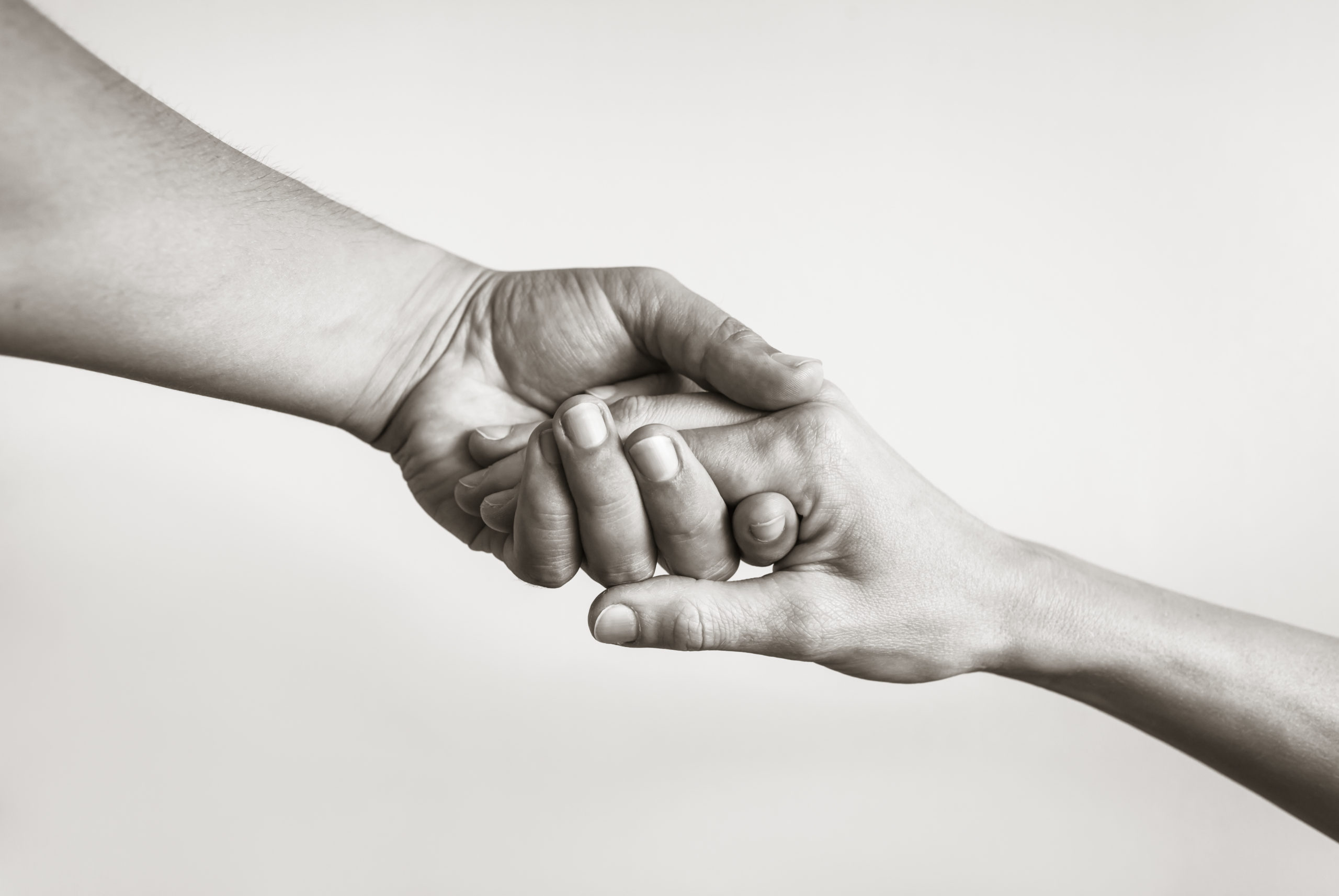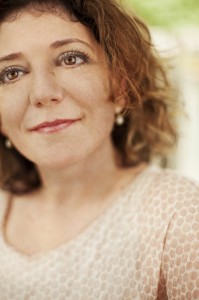Katie Steedly’s first-person piece [The Unspeakable Gift] is a riveting retelling of her participation in a National Institutes of Health study that aided her quest to come to grips with her life of living with a rare genetic disorder. Her writing is superb.
In recognition of receiving the Dateline Award for the Washingtonian Magazine essay, The Unspeakable Gift.
Enter your email here to receive Weekly Wide-Awake
Just Plain Kindness: A Gratitude Conversation with Robin Kropf

KSC: You were a founding member of Words of the Spirit [The writing covenant group I participated in at All Souls Unitarian in Washington, DC], right?
RK: Covenant groups were started by Rob [Reverend Dr. Robert Hardies, Senior Minister] to create smaller communities in the church. The church was looking for new things, new ideas. He had this idea of covenant groups. He called together people who had ideas for what kind of covenant groups–around cooking, around an age group, a group about being a stay-at-home mom, different kinds of groups. Wendy, whom I had met at coffee hour, came up to me and said, “Why don’t we start a covenant group around writing? We’ll all write something and share it.” It was such an original idea. Everybody has book clubs [but] a writing group was such an original idea. I thought it was terrific, so we agreed that the two of us would go to Rob. We attended his meeting as people who were willing to sponsor a covenant group for writing.
Rob, of course, welcomed that idea and we started meeting with him. First it was once a week, and then it got to be a little more demanding. After Christmas it was twice a week. Once a week with Rob, and once a week with the covenant group. We were meeting basically four times a month in the evenings. Rob really was a wonderful teacher because instead of saying, “This is what you have to do to start a covenant group,” he just started our covenant group for potential leaders. We just came, and we had check-ins. We had a candle flame and we had a talking stick. We had everything for our group, and our group became very close. Then we graduated and we started our own covenant groups.
Wendy and I carried our group for two years. First, we met at the church in the library. It was a very cold place to meet. It was not friendly. Even though the word ‘library’ would seem friendly, it wasn’t like a library with Asian carpets and books. There was a lot of street noise and it was distracting. Finally, we agreed and we asked Rob if it would be okay if we met at people’s houses. He said sure. I had the most centrally located apartment and did not have any kids or husband to worry about, so we met at my place. Little did we realize that twenty years later the special bond of the powerful women from this group would still be strong.
KSC: What are you grateful for right now?
RK: I have so much to be grateful for. First of all, I am grateful that I can look back and feel that in my various jobs over the years–my “checkered career” as my brother calls it–I was able to make a contribution in most places that I worked and make good people even more effective.
That is just the beginning. I am really grateful that my kids want me to be around them. So many kids don’t want either their mother or father to be around them, or both. I am grateful that I can keep my tongue between my teeth when I think I should give advice–when I think I should give it, but don’t, and therefore retain my welcome. I only give advice when its specifically asked for, like, ‘What color do you think we should paint the living room?’
I am really grateful that I did not wind up in Woodstock due to being a wannabe hippie. Instead, I wound up in Cambridge, which is really a much better place for me. I like to be where there are things going on all around you–like attend lectures with Nobel laureates! I am so grateful that I landed there. I love my old Victorian house.
When I turned sixty-five, that is when I bought the house in Woodstock. The kids moved to Boston and I was going up to visit them from time to time. My physician daughter-in-law Jennifer is a get-up-and-go person. She has a plan for every minute of every day: What they are going to do. And they do things every minute. She is just amazing. You go down in the morning for breakfast and you sort of dress–since you don’t really know what her plan is but you know she has one–you sort of dress so that you can throw on a scarf and some heels and dress up, or throw on some sneakers and be ready to go on a country hike. I am in my in-between outfit and she says, “We are going to hurry and eat breakfast this morning, because we have an appointment with the realtor.” I thought, ‘Appointment with the realtor? They just bought this house like eighteen months or a year ago. Did they decide to move? That would be strange, but better not to interrupt her in the middle of cooking breakfast for seven people.’ I put on my realtor clothes and we all jumped in the minivan—twin babies, kids, everybody—and we headed to Cambridge. Finally, I said, “So have you all decided to move closer to Dad’s school?” and she said, “WE are not buying a house, we are looking for a realtor for YOU.”
KSC: Was that the first you knew of your plan to move to Boston?
RK: That was the first I knew of my plan to move to Boston. It was 2011. I was planning to retire. Every time it was time for me to retire, my boss would say, “Just work another couple of months,” and that went on for five years and finally…
KSC: You all had work to do.
RK: We did have work to do. It was worth every bit of it. I am so grateful for the financial boon that carried me to Cambridge and allowed [me] to get the place in Cambridge and that I was able to sell the house in Woodstock. I am doing exactly as AARP recommends—[I] have no debt in my retirement. My car is paid for. My house is paid for. I pay off my credit card every month. Imagine the money I save on interest.
KSC: Do you have a gratitude practice? How do you show gratitude? How do you live gratefully?
RK: I can answer that with three suggestions. One is that I do yoga every morning just for twenty minutes, and at the end of that time there is a meditation period of five to ten minutes. This is not any kind of extreme practice. I sit there in my meditation every day. It just comes to me how very lucky I am. I was lucky to have retired from a good place. I was lucky that my children wanted me to be near them. I was lucky financially, so all of these things are possible. I have extreme gratitude for my health, except for having cranky knees. I am so happy, knock on wood. I sit there in my yoga position with my grouchy knees complaining slightly but thinking, ‘How many people are seventy-six years old and are so full of energy and so able to help other people instead of being helped themselves?’ So that is the final thing, and it occurs to me every morning when I do my yoga, and I do it probably five times a week. (I can’t say I absolutely do it every day.) I am grateful for health, because without that, everything else would be impossible. Really enjoying life would be very hard.
KSC: Do you consider your relationship with your grandchildren a gratitude practice?
RK: It is because I am very conscious of being grateful that I get to spend time with them and not trying to be their mother or their parent. I get to be the one who finds joy in them. I get to be the one who spoils them a little. I get to drive my teenage granddaughter a lot–she has a chauffeur service. I am her Uber driver. I am also her emergency “I left my soccer shoes at home this morning. Can you bring them to school for me?” Now, I am in Cambridge, and she goes to high school in Newton. But I get in the car, go by the house, find her soccer shoes, and take them to high school. The people in the office know me.
KSC: Is there a connection between gratitude and story?
RK: Absolutely. When you hear other people’s stories and you realize sometimes what a hard life people have had, and what things they had to overcome, and what lack of opportunity they had, and so many other things, and yet they came forward anyway. Sometimes I almost feel ashamed that I started with a reasonably happy family and solid middle-class financial footing under me, and a paid-for college education–all those things. Then I hear other people’s stories and it just makes me more grateful for all these things in my life. You also learn how to approach things. You can be grateful to hear people. I used to hear my grandmother tell stories about growing up in West Virginia and that is another whole thing we could go into, the hardships of daily life, which I will skip right now.
KSC: You remember sitting, hearing her tell stories?
RK: I would ask her to tell the stories. You remember my elegant aunt in California. She knew so many of the family stories and the family history. I used to delight in going out to visit her a couple times a year and asking her questions about various parts of the family. You know, how people lived, their day-to-day life. How they washed their clothes. It is just fascinating. Then you are grateful for your good ‘ole washing machine.
KSC: Did hearing those stories and sharing those stories have an impact on the choices you made growing up and in your adult life?
RK: Very much so. For example, my parents had kind of a rocky marriage, but her sister had a very loving and thoughtful marriage. The contrast between the two families struck me and caused me to think, ‘What does a good relationship really consist of?’ The stories of my mother’s sister and brother-in-law, the way they lived, and how they met and all of that made me very conscious of finding the right person. Unfortunately, I was not exposed to her very much before my marriage. But later, it kept me from making other mistakes I might have made as I got older when I realized what a really good relationship was composed of. Their example and other people’s stories about relationships and marriages.
My college roommate, who is like a sister, was married for many years to a very prominent psychiatrist. He was diagnosed with lung cancer and they knew he only had a short time to live. So, they gathered all their friends together for a “rededication of their marriage” ceremony. It was a wonderful way to bring everyone to see Edward before he left the planet. I asked him what in an all of his work with couples over the years [of] being a marital therapist was the one thing that was the secret of a good relationship. He said, “Robin, you know, it all boils down to plain good manners. Just being respectful and kind to one another, and thinking about things in a mannerly way. When you think about it, in the marriage ceremony, you promise to love and honor. Honor means being respectful. Right? Manners are designed, well some manners are designed to simply show off, but most manners are designed to show respect for the other person and just plain kindness.”
About Katie

From Louisville. Live in Atlanta. Curious by nature. Researcher by education. Writer by practice. Grateful heart by desire.
Buy the Book!
The Stage Is On Fire, a memoir about hope and change, reasons for voyaging, and dreams burning down can be purchased on Amazon.





